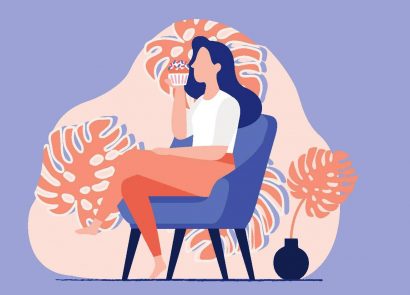Part of our regular doctor’s clinic, we caught up with Dr Hazel Wallace AKA The Food Medic as she talks her new range with PAUL and how food affects our mood.
What can you tell us about the new range?
“This summer, I partnered with French bakery, PAUL, to launch a new feel-good breakfast and lunch range.
“Our collaboration reflects people’s growing needs for grab-and-go food that is not only delicious, but also varied, well-balanced and largely centred around plants.
“In the range we have food to take you right through the day including breakfast pots, sweet and savoury open sandwiches, rolls, and salads.”
How do you fuel your workouts?
“It depends on the time of the day. For an early morning workout, I’ll usually have a small snack, such as a coffee and a banana or a slice of toast beforehand, and then have a bowl of oats with a scoop of protein and berries after I’ve trained.
“Or if I’m by a PAUL, I will grab one of the overnight oat and chia seed pots, which are part of my range. I typically don’t train fasted – while some people prefer it, it’s not something I tend to recommend particularly for women.
“For workouts later in the day, I skip the caffeine and have a snack of rice cakes and peanut butter or a protein shake with vegan protein, a banana, tablespoon of nut butter and oat milk. A general guide is to have a meal about three to four hours before exercise or a lighter snack about one to two hours before exercise.”
What would be your perfect ‘back to the office’ lunch?
“Every week I run a #lunchboxclub on my Instagram to inspire people to make healthy, quick and easy lunches for the week.
“Some lunches we’ve made so far include veggie curries, sausage tray bakes, pesto pasta and sun-dried tomato scones.
“The Food Medic x Paul range has lots of healthy lunch options to choose from, such as salads, open sandwiches and filled rolls – I often pick up one of those on the days I have forgotten my lunch or feel like I want something a bit more special on the go.”
How does food affect our mood?
“Those butterflies in your tummy, or the strong ‘gut feeling’ you can’t ignore– it’s a sign that your body and brain are talking to each other. We call this the ‘Brain-Gut axis’.
“Likely because, not only does your brain have an impact on your gut health, but your gut, and the food that you eat, influences the brain – and your mood. But can you really “boost” your mood with individual foods?
“Well, not quite, but there is growing evidence to say that overall diet has a role to play in the management of certain mental health conditions.
“A Mediterranean style diet, that is rich in healthy oils from oily fish, nuts and seeds, rich in colourful fruits and vegetables, wholegrains and legumes, and lower in processed meat and sugar, seems to be the most beneficial.”
You’re a qualified PT and an advocate of exercise as medicine. Tell us about your weekly exercise routine.
“I do CrossFit style training three times a week, and run two to three times per week. During lockdown I really worked on my running and since the outdoor facilities have opened back up I have been going to the running track every week.
“I also like playing tennis and just dabbling in sport – anything that moves you is movement, and movement is medicine!”























